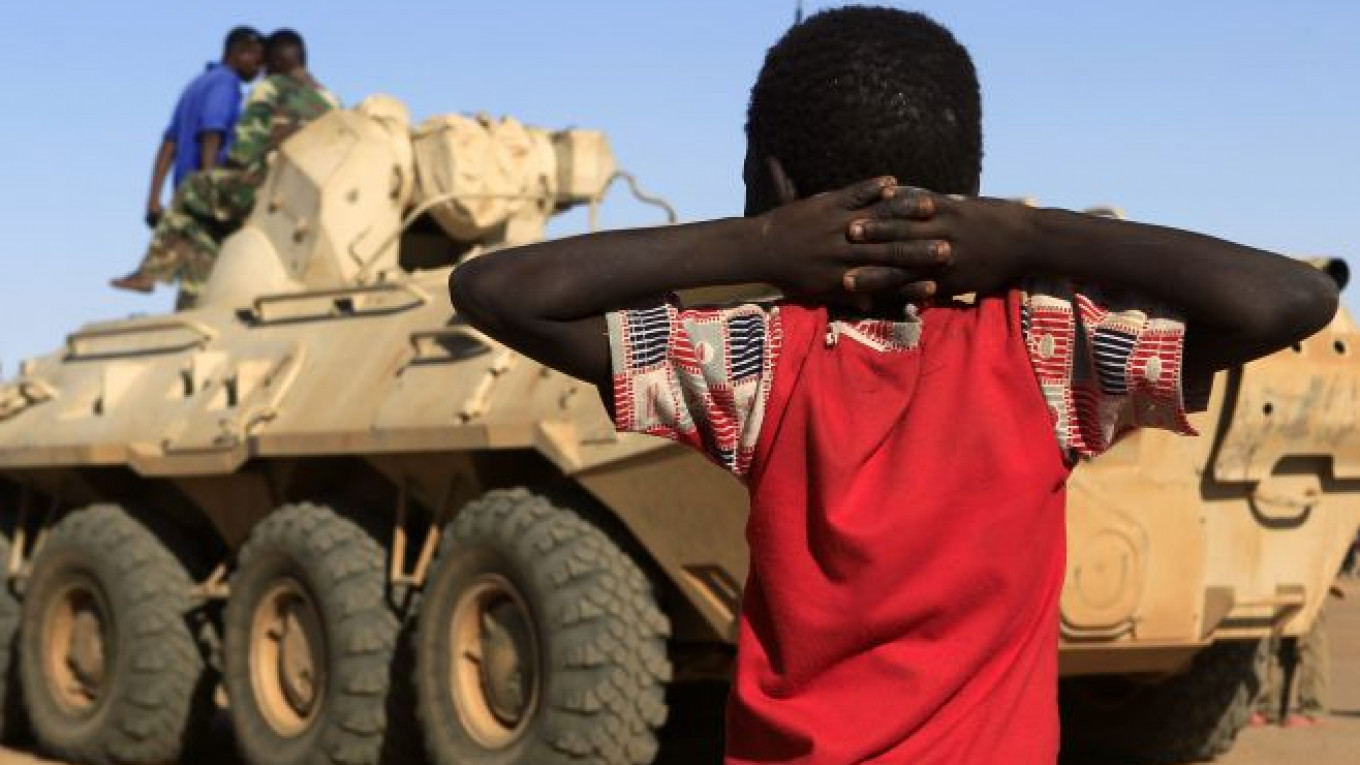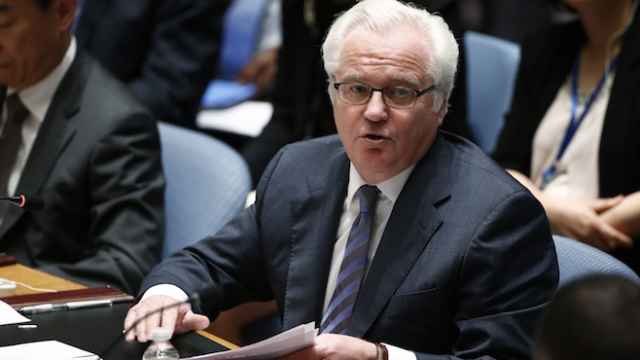Russia has opposed requests by the United States, Britain and France for the firing of a key Russian official from a troubled peacekeeping mission in Sudan's conflict-torn Darfur region, UN diplomatic sources said.
The three Western powers have repeatedly complained in recent months to UN peacekeeping chief Herve Ladsous about the poor performance of UNAMID, the seven-year old joint UN-African Union mission charged with stabilizing Darfur, UN diplomats and officials said on condition of anonymity.
Among the specific issues raised by the three countries to Ladsous is that a Russian diplomat, Karen Tchalian, is still serving as UNAMID chief of staff even though they consider he bears much of the responsibility for withholding information from UN headquarters and the Security Council about government attacks on civilians and peacekeepers in Darfur.
In his role as chief-of-staff at UNAMID, Tchalian acted as a kind of gatekeeper for the flow of information from the mission, the diplomats said.
Tchalian declined to discuss the accusations against him. Asked about the Western complaints, as well as those of a former UNAMID spokeswoman, and if he was receiving protection from Moscow, Tchalian wrote in an email: "I not aware of any of this."
A spokesman for Russia's UN mission, Alexei Zaytsev, asked about complaints about Tchalian's performance in Sudan, said: "We are not aware of any complaints about Karen Tchalian's work in UNAMID." He added that Tchalian was seeking to move to another job in the UN system and that Russia supported that.
The lack of sufficient or accurate information from the ground in Darfur, ravaged by conflict since 2003, created a mistaken impression that the situation there was improving and obscured UNAMID's ineffectiveness, UN diplomats say.
The United Nations said in October that UNAMID had failed to provide UN headquarters with full reports on Sudanese military attacks against civilians and peacekeepers, but denied there was a deliberate cover-up. It said that under-reporting or keeping silent in such cases was unacceptable but did not say who was responsible.
Neither UNAMID's spokesman nor Sudan's UN mission responded to requests for comment. Khartoum has said it wants the UN mission to leave the country.
The UN peacekeeping department declined to comment on the accusations against Tchalian. Ladsous said in a statement that "under-reporting or keeping silent on incidents involving crimes against civilians and peacekeepers cannot be condoned under any circumstances."
A former UNAMID spokeswoman, Aicha Elbasri, who resigned last year in protest at the mission's information policies, gave reporters documents that she said showed how the mission under-reported or distorted facts about violence in Darfur.
Elbasri said Tchalian manipulated internal reports on Darfur, censored public statements by the mission, and tried to block some press releases, especially when the Sudanese government was bombing civilians.
Neither Tchalian nor Russian diplomats responded to requests for comment about these specific claims.
UNAMID has been deployed since 2007. Mainly African tribes took up arms in 2003 in Darfur against the Arab-led government in Khartoum, which they accused of discriminating against them.
As many as 300,000 people have died in Darfur, the United Nations has said. Nearly 170 peacekeepers have been killed.
A Message from The Moscow Times:
Dear readers,
We are facing unprecedented challenges. Russia's Prosecutor General's Office has designated The Moscow Times as an "undesirable" organization, criminalizing our work and putting our staff at risk of prosecution. This follows our earlier unjust labeling as a "foreign agent."
These actions are direct attempts to silence independent journalism in Russia. The authorities claim our work "discredits the decisions of the Russian leadership." We see things differently: we strive to provide accurate, unbiased reporting on Russia.
We, the journalists of The Moscow Times, refuse to be silenced. But to continue our work, we need your help.
Your support, no matter how small, makes a world of difference. If you can, please support us monthly starting from just $2. It's quick to set up, and every contribution makes a significant impact.
By supporting The Moscow Times, you're defending open, independent journalism in the face of repression. Thank you for standing with us.
Remind me later.






